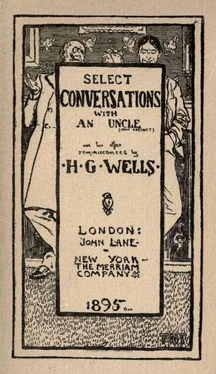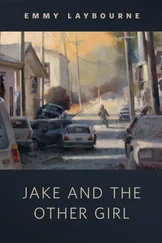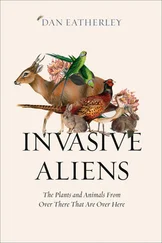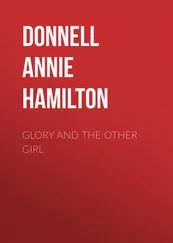Herbert Wells - Select Conversations with an Uncle (Now Extinct) / And Two Other Reminiscences
Здесь есть возможность читать онлайн «Herbert Wells - Select Conversations with an Uncle (Now Extinct) / And Two Other Reminiscences» весь текст электронной книги совершенно бесплатно (целиком полную версию без сокращений). В некоторых случаях можно слушать аудио, скачать через торрент в формате fb2 и присутствует краткое содержание. Жанр: Классическая проза, на английском языке. Описание произведения, (предисловие) а так же отзывы посетителей доступны на портале библиотеки ЛибКат.
- Название:Select Conversations with an Uncle (Now Extinct) / And Two Other Reminiscences
- Автор:
- Жанр:
- Год:неизвестен
- ISBN:нет данных
- Рейтинг книги:4 / 5. Голосов: 1
-
Избранное:Добавить в избранное
- Отзывы:
-
Ваша оценка:
- 80
- 1
- 2
- 3
- 4
- 5
Select Conversations with an Uncle (Now Extinct) / And Two Other Reminiscences: краткое содержание, описание и аннотация
Предлагаем к чтению аннотацию, описание, краткое содержание или предисловие (зависит от того, что написал сам автор книги «Select Conversations with an Uncle (Now Extinct) / And Two Other Reminiscences»). Если вы не нашли необходимую информацию о книге — напишите в комментариях, мы постараемся отыскать её.
Select Conversations with an Uncle (Now Extinct) / And Two Other Reminiscences — читать онлайн бесплатно полную книгу (весь текст) целиком
Ниже представлен текст книги, разбитый по страницам. Система сохранения места последней прочитанной страницы, позволяет с удобством читать онлайн бесплатно книгу «Select Conversations with an Uncle (Now Extinct) / And Two Other Reminiscences», без необходимости каждый раз заново искать на чём Вы остановились. Поставьте закладку, и сможете в любой момент перейти на страницу, на которой закончили чтение.
Интервал:
Закладка:
SELECT CONVERSATIONS WITH AN UNCLE (now extinct) and two other reminiscences by
H. G. WELLS
TO
MY DEAREST
AND BEST FRIEND
R. A. C.
PREFATORY
He was, I remember, short, but by no means conspicuously short, and of a bright, almost juvenile, complexion, very active in his movements and garrulous—or at least very talkative. His judgments were copious and frequent in the old days, and some at least I found entertaining. At times his fluency was really remarkable. He had a low opinion of eminent people—a thing I have been careful to suppress, and his dissertations had ever an irresponsible gaiety of manner that may have blinded me to their true want of merit. That, I say, was in the old days, before his abrupt extinction, before the cares of this world suddenly sprang upon, and choked him. I would listen to him, cheerfully, and afterwards I would go away and make articles out of him for the Pall Mall Gazette , so adding a certain material advantage to my mental and moral benefit. But all that has gone now, to my infinite regret; and sorrowing, I have arranged this unworthy little tribute to his memory, this poor dozen of casual monologues that were so preserved. The merits of the monument are his entirely; its faults entirely my own.
OF CONVERSATION AND THE ANATOMY OF FASHION
This uncle of mine, you must understand, having attained—by the purest accident—some trifles of distinction and a certain affluence in South Africa, came over at the earliest opportunity to London to be photographed and lionised. He took to fame easily, as one who had long prepared in secret. He lurked in my chambers for a week while the new dress suit was a-making—his old one I really had to remonstrate against—and then we went out to be admired. During the week's retirement he secreted quite a wealth of things to say—appropriate remarks on edibles, on music, on popular books, on conversation, off-hand little things, jotting them down in a note-book as they came into his mind, for he had a high conception of social intercourse, and the public expectation. He was ever a methodical little gentleman, and all these accumulations that he could not get into his talk, he proposed to put away for the big volume of "Reminiscences" that was to round off his life. At last he was a mere conversational firework, crammed with latent wit and jollity, and ready to blaze and sparkle in fizzing style as soon as the light of social intercourse should touch him.
But after we had circulated for a week or so, my uncle began to manifest symptoms of distress. He had not had a chance. People did not seem to talk at all in his style. "Where do the literary people meet together, George? I am afraid you have chosen your friends ill. Surely those long-haired serious people who sat round my joke like old cats round a beetle—what is it?—were not the modern representatives of a salon . Those abominable wig-makers' eccentricities who talked journalistic 'shop,' and posed all over that preposterous room with the draperies! Those hectic young men who have done nothing except run down everybody! Don't tell me that is the literary society of London, George. Where do they let off wit now, George? Where do they sparkle? I want to sparkle. Badly. I shall burst, George, if I don't."
Now really, you know, there are no salons now—I suppose we turn all our conversation into "copy"—or the higher education has eliminated the witty woman—and my uncle became more and more distressed. He said a lot of his good things to me, which was sheer waste. I became afraid. I got him all the introductions I could, pushed him into every lion's den I had access to. But there was no relief.
"I see what it is, George," said my uncle, "these literary people write themselves out. They say nothing for private use. Their brains are weary when they come into company. They get up in the morning fresh and bright, and write, write, write. Then, when they are jaded, they condescend to social intercourse. It is their way of resting. But why don't they go to bed? No more clever people for me, George. Let us try the smart. Perhaps among them we shall find smart talking still surviving. Allons , George!"
That is how my uncle came into collision with fashion, how I came to take him to the Fitz-Brilliants.
Of course you have heard of the Fitz-Brilliants? If you have not, it is not their fault. They are the smartest people in London. Always hard at work, keeping up to date, are the Fitz-Brilliants. But my uncle did not appreciate them. Worse! They did not appreciate my uncle. He came to me again, more pent up than ever, and the thing I had feared happened. He began to discourse to me. It was about Fashion, with a decided reference to the Fitz-Brilliants, and some reflections upon the alleys of literary ability and genius I had taken him through.
"George," said my uncle, " this Fashion is just brand-new vulgarity . It is merely the regal side of the medal. The Highly Fashionable and the Absolutely Vulgar are but two faces of the common coin of humanity, struck millions at a time. Spin the thing in the light of wealth, and I defy you, as it whizzes from the illumination of riches to the shadow of poverty, to distinguish the one stamp from the other. You cannot say, here the mode ends, and there the unspeakable thing, its counterpart, has its beginning. Their distinction of mere position has vanished, and they are in seeming as in substance one and indivisible."
My uncle was now fairly under way.
"The fashionable is the foam on the ocean of vulgarity, George, cast up by the waves of that ocean, and caught by the light of the sun. It is the vulgar—blossoming. The flower it is of that earthly plant, destined hereafter to run to seed, and to beget new groves and thickets, new jungles, of vulgar things.
"Note, George, how true this is of that common property of the vulgar and fashionable—slang. The apt phrase falls and applause follows, and then down it goes. The essential feature of slang is words misapplied; the essential distinction of a coarse mind from one refined, an inability to appreciate fine distinctions and minor discords; the essential of the vulgar, good example misused. First the fashionable get the apt phrase, and bandy it about in inapt connections until even the novelty of its discordance has ceased to charm, and thereafter it sinks down, down. Fin de siècle and cliché have, for instance, passed downward from the courts of the fashionable among journalists into the unspeakable depths below. Soon, if not already, fin de siècle gin and onions and haddocks will be for sale in the Whitechapel-road, and Harriet will be calling Billy a "cliché faced swine." Even so do ostrich feathers begin a career of glory at the Drawing-Room and the fashionable photographer's, and, after endless re-dyeing, come to their last pose before a Hampstead camera on a bright Bank Holiday.
"The fashionable and vulgar are after all but the expression of man's gregarious instinct. Every poor mortal is torn by the conflicting dreads of being 'common-place,' and of being 'eccentric.' He, and more particularly she, is continually imitating and avoiding imitation, trying to be singular and yet like other people. In the exquisitely fashionable and in the entirely vulgar the sheep-like longing is triumphant, and the revolting individual has disappeared. The former is a mechanical vehicle upon which the new 'correct thing' rides forth, to extort the astonishment of men; the latter a lifeless bier bearing its corrupt and unrecognisable remains away to final oblivion, amidst universal execration.
"It is curious to notice, George, that there has of late been a fashion in 'originality.
Читать дальшеИнтервал:
Закладка:
Похожие книги на «Select Conversations with an Uncle (Now Extinct) / And Two Other Reminiscences»
Представляем Вашему вниманию похожие книги на «Select Conversations with an Uncle (Now Extinct) / And Two Other Reminiscences» списком для выбора. Мы отобрали схожую по названию и смыслу литературу в надежде предоставить читателям больше вариантов отыскать новые, интересные, ещё непрочитанные произведения.
Обсуждение, отзывы о книге «Select Conversations with an Uncle (Now Extinct) / And Two Other Reminiscences» и просто собственные мнения читателей. Оставьте ваши комментарии, напишите, что Вы думаете о произведении, его смысле или главных героях. Укажите что конкретно понравилось, а что нет, и почему Вы так считаете.










